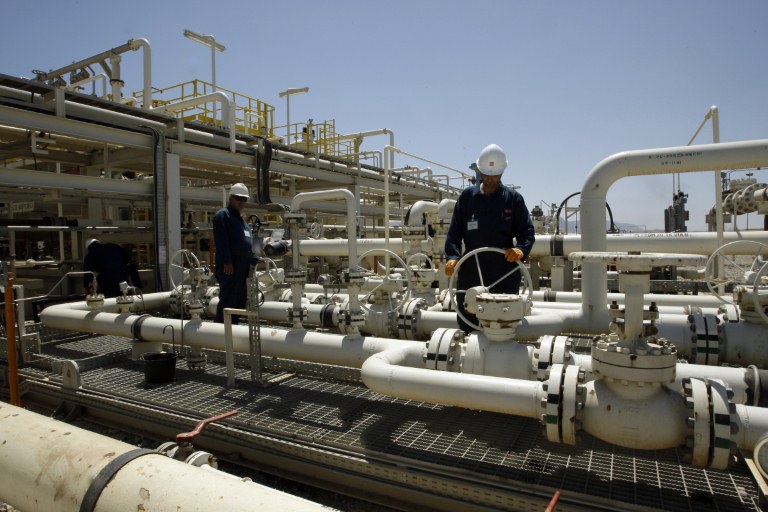The Organisation of Petroleum Exporting Countries (OPEC) has moved to approve raising oil production rates in the global markets, despite the possible impact the move may have on curbing prices at a time when global demand on oil is increasing.
A number of oil and energy experts confirmed that the increase in oil production may range between 600,000 and 700,000 barrels per day over the coming six months by OPEC members and non-members.
Medhat Yousef, former deputy head of the Egyptian General Petroleum Corporation, said that the coming period may see conflicts at the global level fuelled by oil prices, including the conflict between shale oil producers in the US and the OPEC, which forced the organisation to reduce demand in the past months in a
bid to drive prices up. Most member countries are now moving towards raising production to fill demand.
He added that Saudi Arabia holds the largest market share with regard to the export of crude oil within the OPEC, and it is therefore always seeking to maintain its share in the global market and its leadership, which caused the kingdom to think of maintaining its export levels, curbing Brent crude prices over the past years.
Recently, however, the kingdom showed flexibility in terms of rates of production in order to balance the global oil market.
Yousef explained that America is the largest consumer of crude oil in the world, which prompted the country to enter into conflicts to reduce the price of Brent crude, prompting the OPEC to ask the US to cooperate with it to maintain the stability of the global market and maintain the level of prices appropriate for oil-exporting countries.
He said that Russia is an influential player in the world market, being the world’s largest exporter of natural gas, the prices of which are linked to Brent crude prices, and Russia thus seeks to maintain the level of oil prices at high levels in order to ensure high prices of natural gas and maintain its gas wealth.
Minister of Petroleum and Mineral Resources Tarek El-Molla said that the world oil markets have witnessed unprecedented cooperation from oil-producing countries in recent years, both within OPEC and non- OPEC countries.
El-Molla added that Egypt supports the continued cooperation between producers and consumers to face the biggest challenge in the coming period of maintaining the stability and sustainability of the oil market to benefit producers and consumers alike while serving the global economy in general.
Meanwhile, Russian Energy Minister Alexander Novak said that OPEC decisions are in line with what needs to be done with respect to the oil market, following the OPEC agreement to increase production by about 1m barrels per day starting from July.
Since last year, the OPEC and its allies have engaged in an agreement to reduce production to 1.8m barrels per day. The decision helped restore balance in the market in the past 18 months. The price of oil jumped to $75 per barrel from $27 in 2016.




